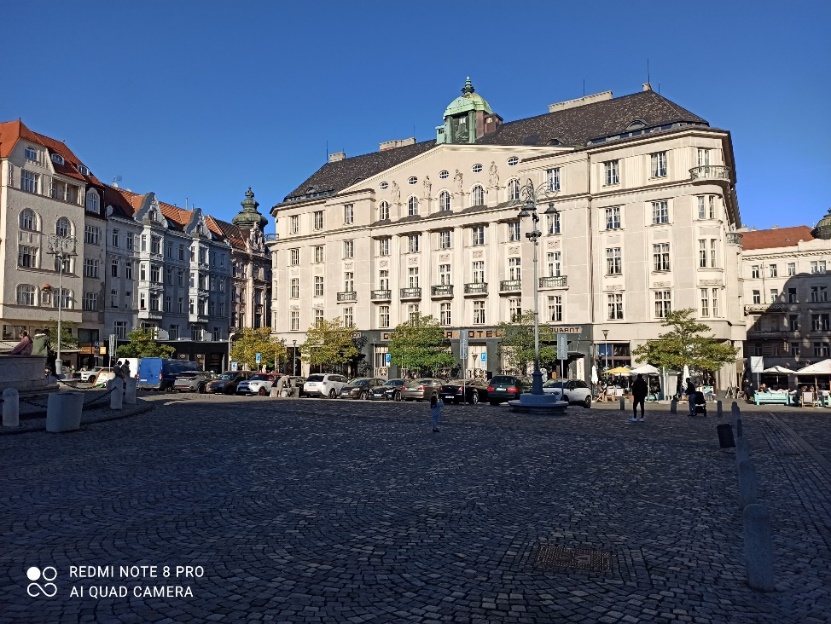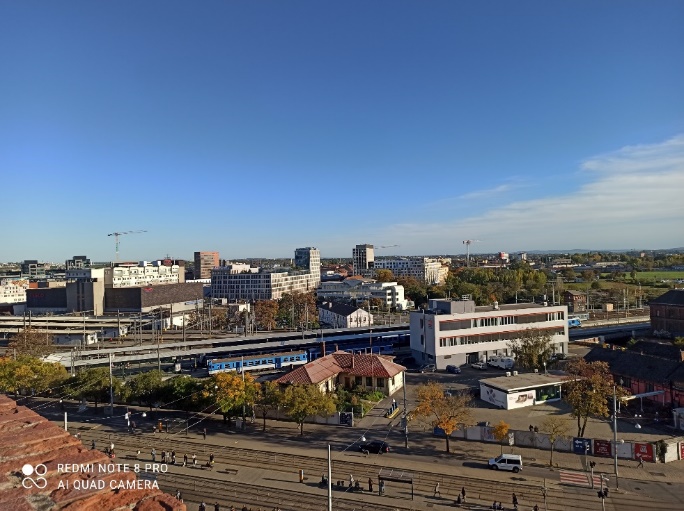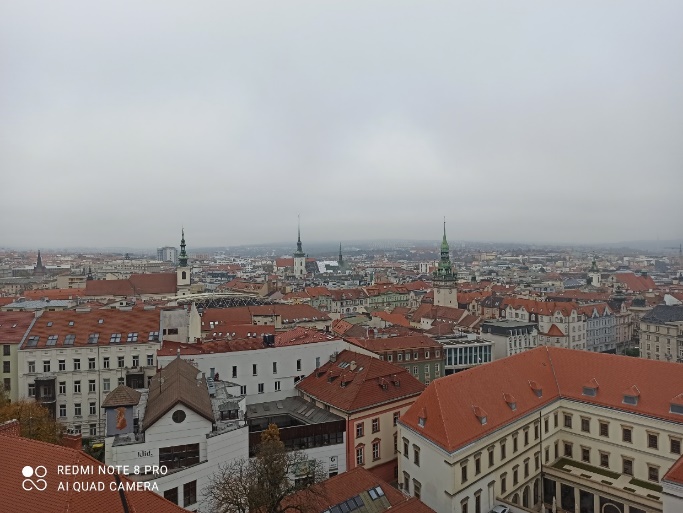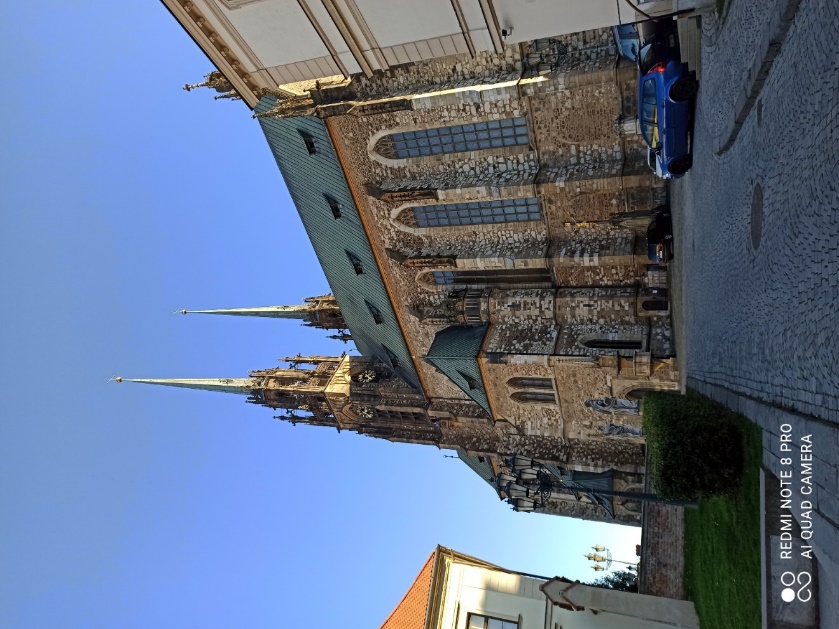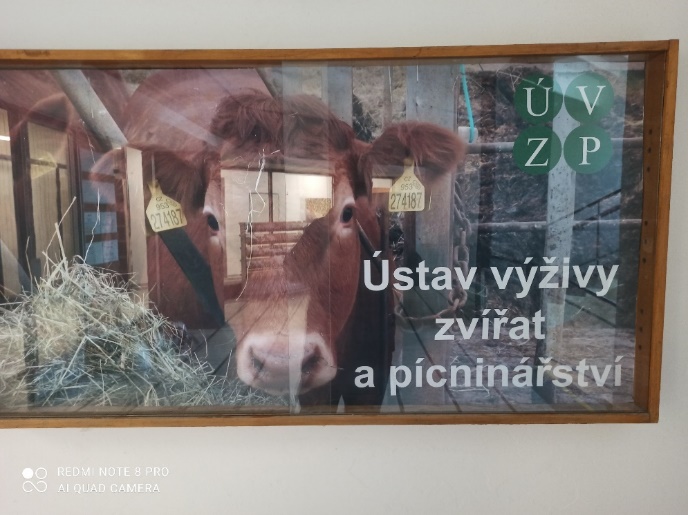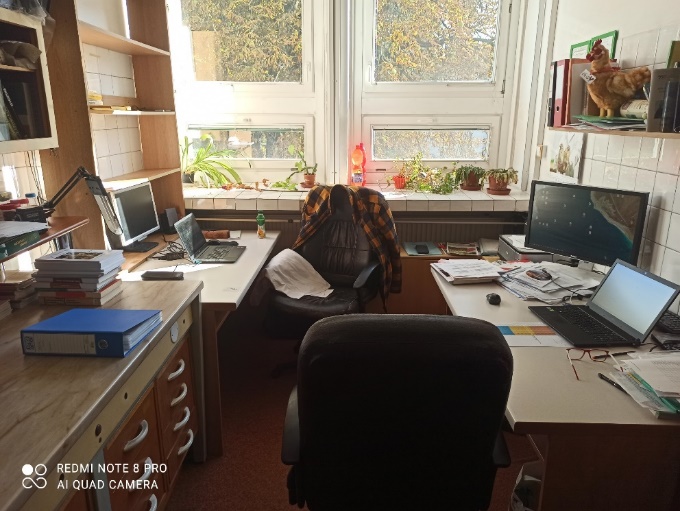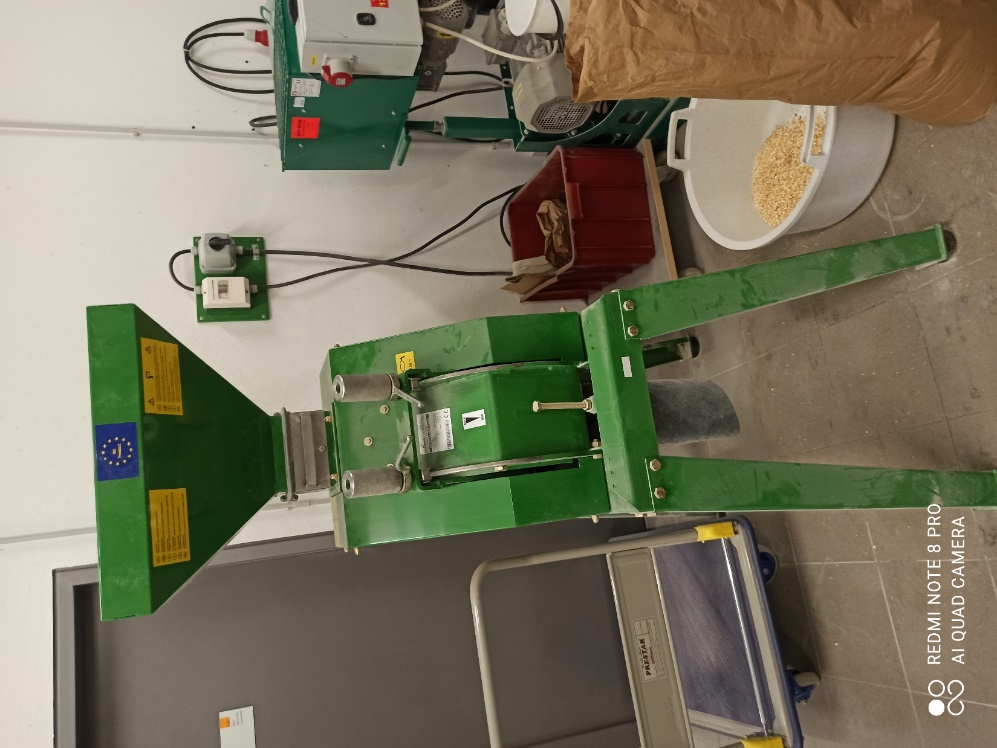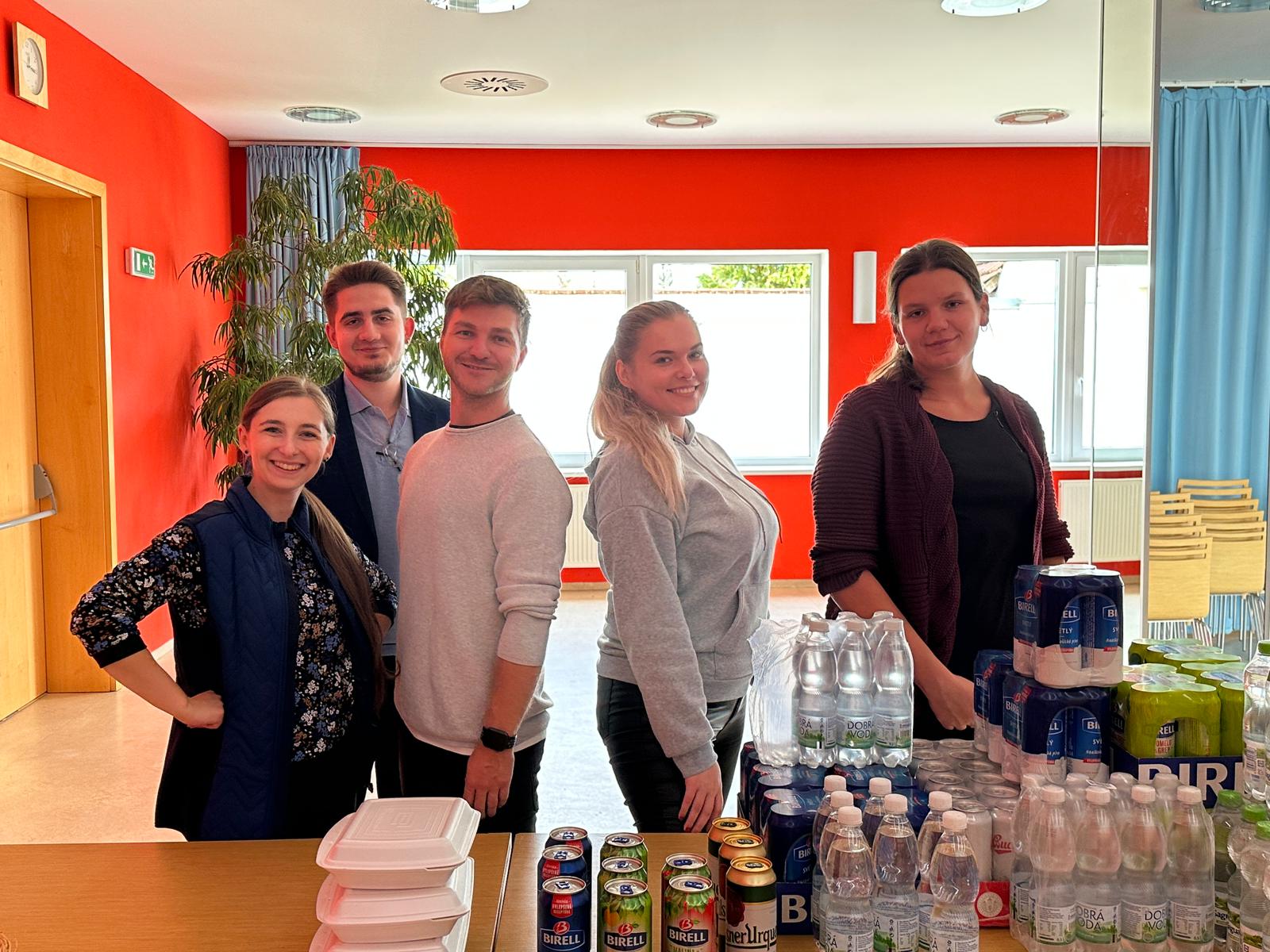
From 03.10.2022-01.11.2022 I completed an internship within the Erasmus+ programme at Mendel University in Brno, Czech Republic.
Before the final decision to choose a research centre, I familiarised myself with the current research conducted at selected units of the University, studied the achievements of the Departments and their staff. After a detailed analysis, the choice fell on the Department of Animal Nutrition and Forage Production of Faculty of AgriSciences.
The internship supervisor was Dr Ondřej Šťastník, who specialises in the enrichment of compound feed with supplementary ingredients, the physical properties of pellets and the determination of chlorine dioxide in poultry feed.
The place of accommodation was chosen to be the university’s dormitories, which are quite close to the main university buildings, but also to the city centre and all the necessary infrastructure.
Equipment in the feed laboratory – shots during breaks between samples:
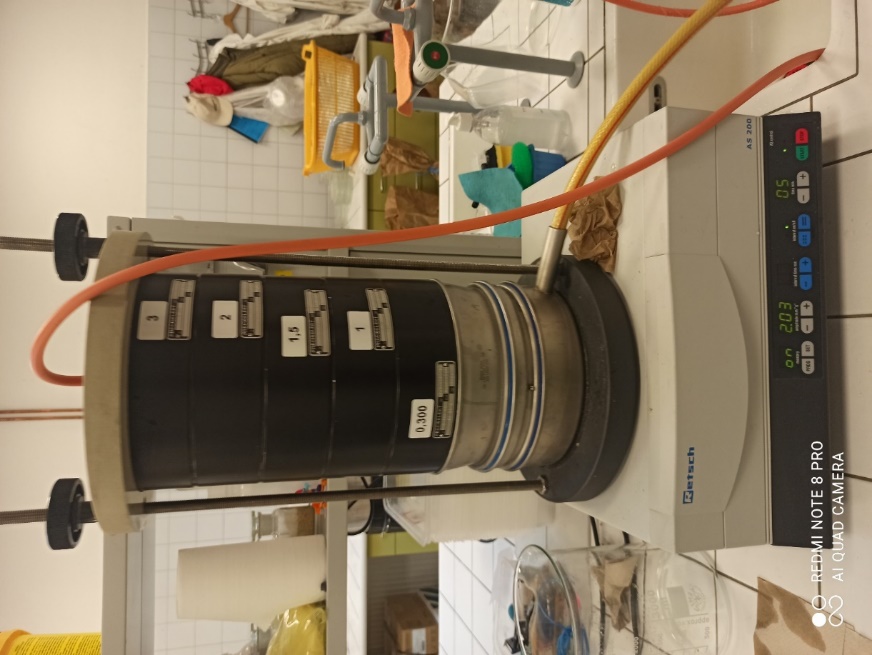 Set of sieves for determining fractions in feed mixture
Set of sieves for determining fractions in feed mixture
As part of my internship, I had the opportunity to get to know first-hand the interests of the staff and PhD students of the unit, and to attempt to take part in some laboratory analyses.
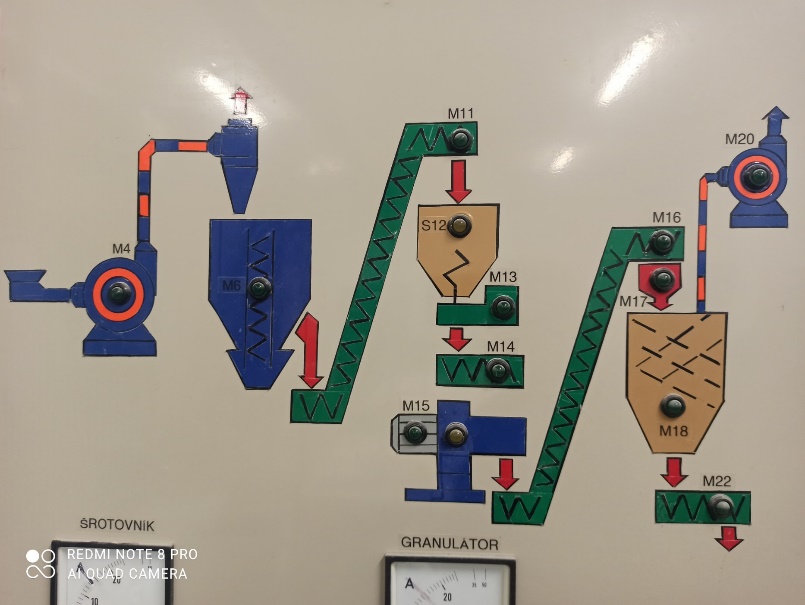 Industrial granulator control panel
Industrial granulator control panel
Of all the activities during the internship, the following should be particularly highlighted:
- participation in laboratory exercises with students – composition and preparation of feed mixes for poultry and pigs; selection of the method of grinding the raw material with particular regard to its moisture content; determination of the strength of granules and their geometrical measurements; determination of the solubility of granules in water and the occurrence of individual fractions after dissolution of the granules;
- determination of the fractions of the elements present in the pellets;
- familiarisation with the masses used in feed production and raw material preparation (different types of mills and granulators).
Selected shots from the background of other Departments:
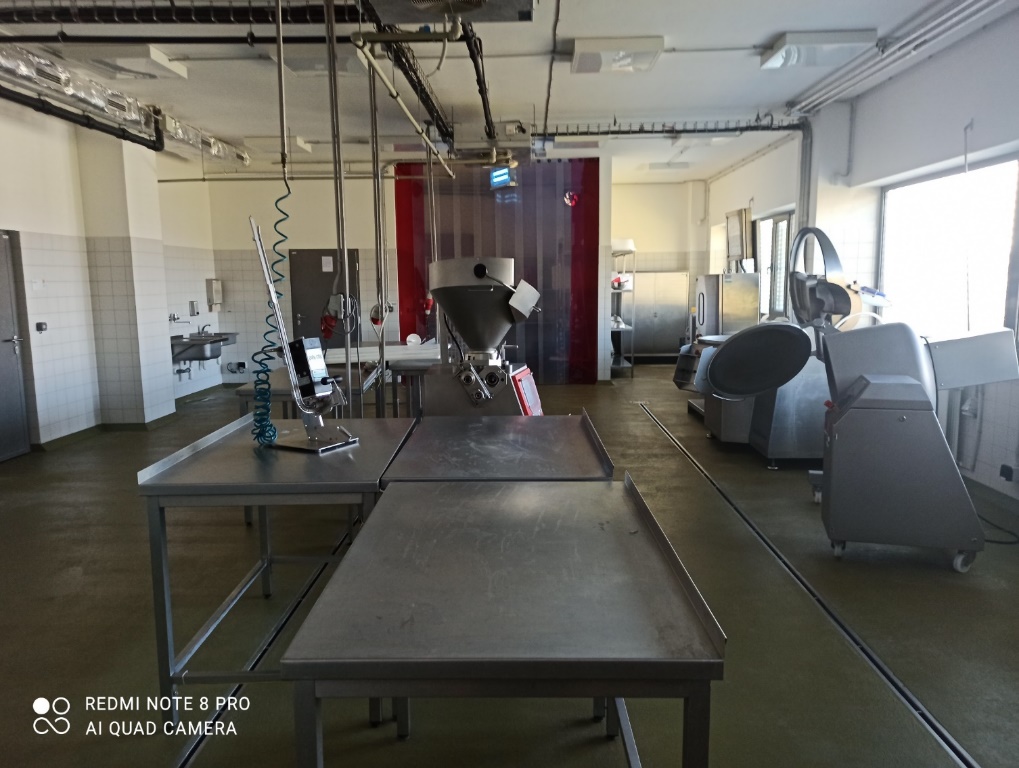 Meat processing production line, Department of Food Technology
Meat processing production line, Department of Food Technology
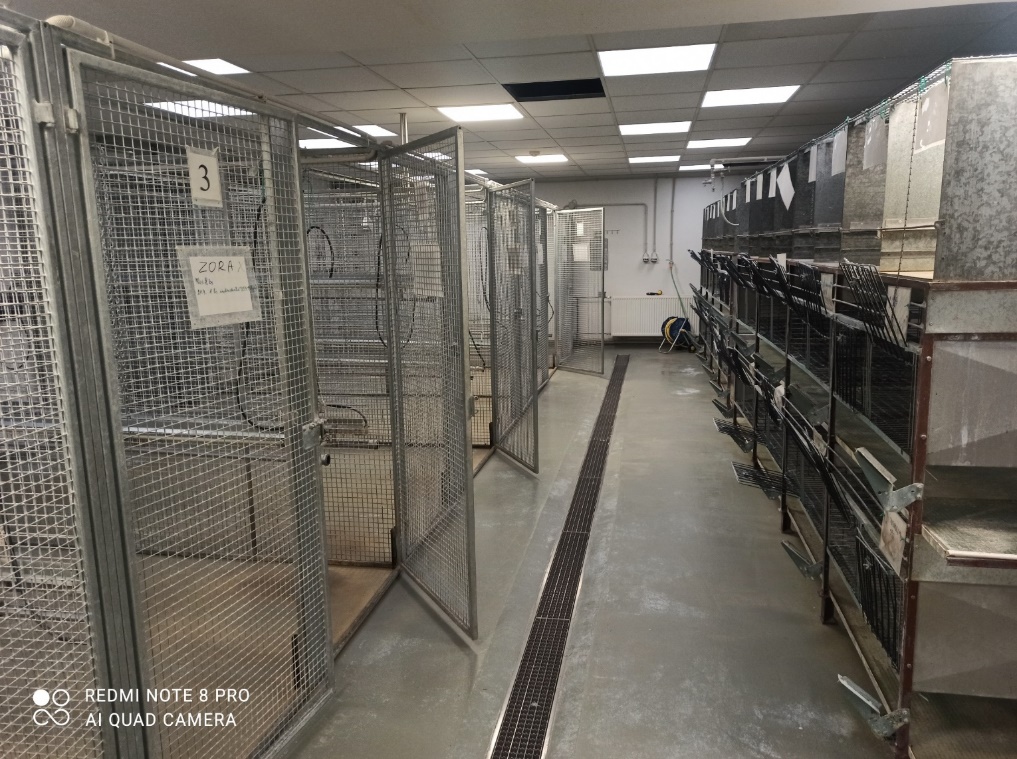 Poultry room, Department of Animal Husbandry and Selection
Poultry room, Department of Animal Husbandry and Selection
In addition to this, I also became introduced to the activities of other departments, including the Department of Food Technology. Its staff focus on research into the physical properties and chemical composition of many raw materials and products of animal origin, including eggs, cheese, meat products, etc. The Department’s equipment is represented by production lines for milk processing, meat processing and a bakery and brewery.
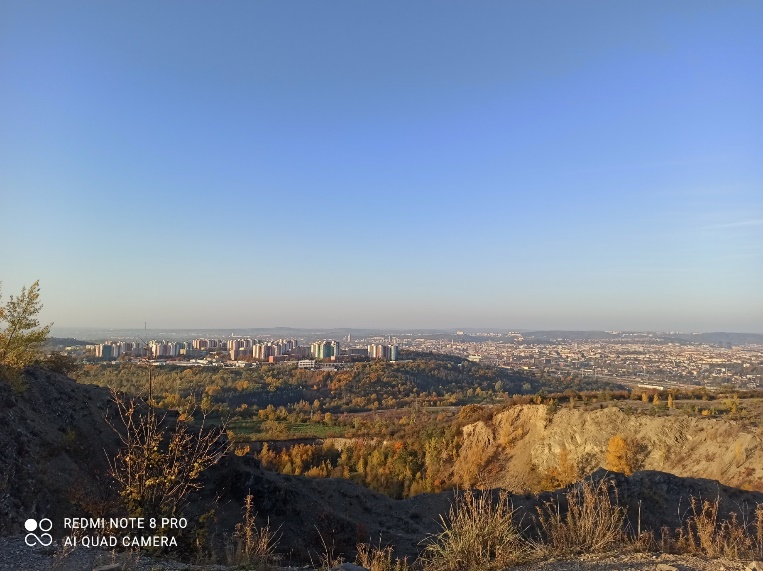 View of the city from the Hady protected area
View of the city from the Hady protected area
I had the privilege of meeting with former and current University Authorities. The Vice-Dean of the Faculty of Agriculture, Mr. Doc. Ing. Daniel Falta, PhD – is an outstanding specialist in dairy farming and a highly regarded advisor among farmers. In addition, Mr. Docent specialises in the computerisation and digitisation of the dairy cattle herd management process. The former Vice-Rektor for Student Affairs, Prof. Ing. Martina Lichovníkova, PhD is a specialist in poultry nutrition, including laying hens and broilers. Ms. Lichovníkova emphasised her appreciation of specialists in the poultry industry in Poland, which is one of the leaders in this industry.
I was also invited to meet with PhD students from the host department to discuss details of PhD training in Poland, Czech Republic and Ukraine and to outline opportunities for possible collaboration between young researchers. After the meeting, I was invited to record a podcast moderated by PhD students from this unit. A link to the podcast is provided at the end of the report.
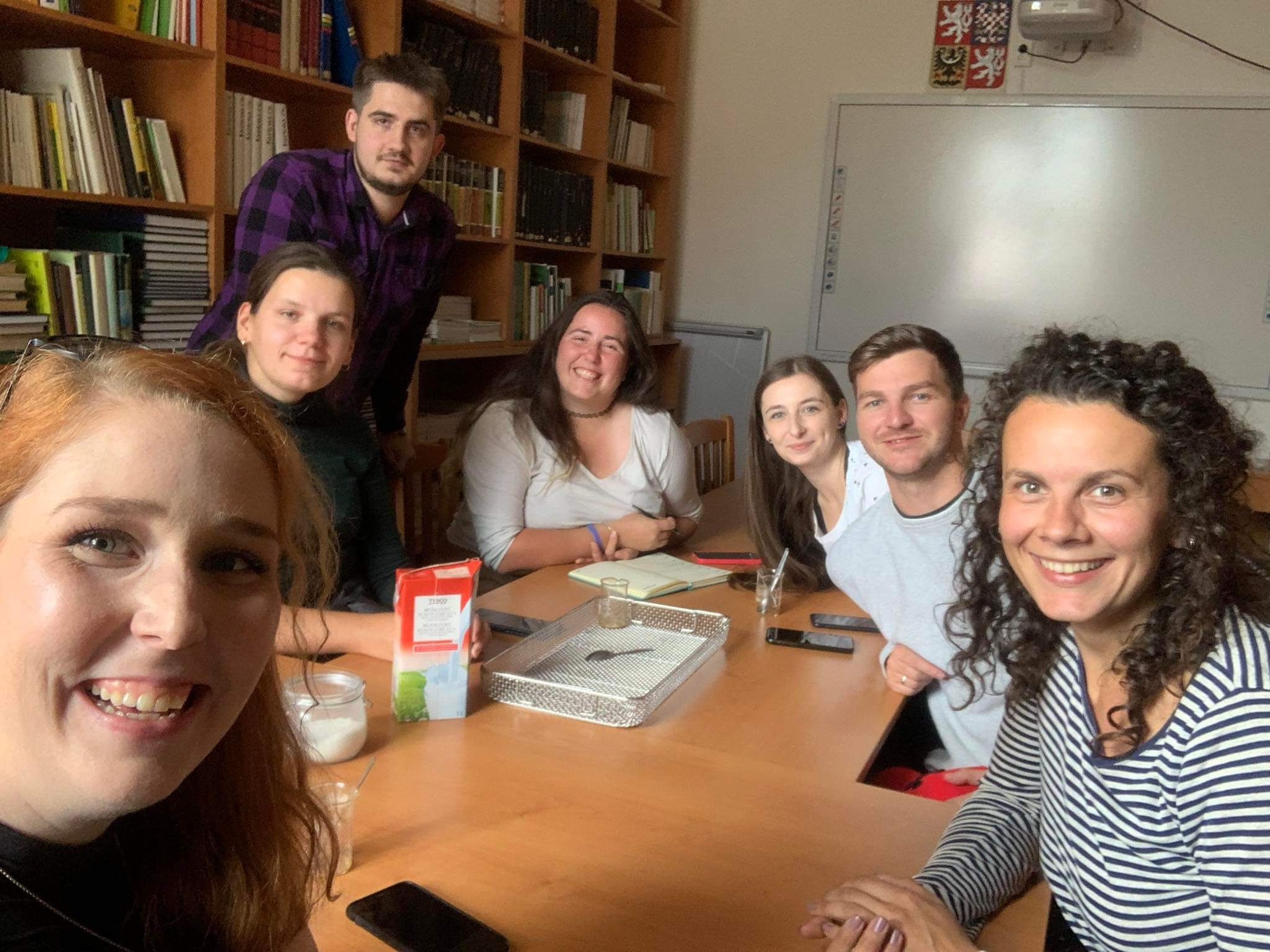 Coffee break with PhD students of the Department of Animal Nutrition and Animal Feed Production
Coffee break with PhD students of the Department of Animal Nutrition and Animal Feed Production
The special beauty of the old town of Brno and the proximity of nature and the city are also worth noting, as the Hady protected area, which used to be a mine, is quite close by. Today, this area presents a variety of ecosystems in itself – meadows, wetlands, rocky areas, etc.
I also had the opportunity to take part passively in an away symposium entitled “Sorghum in animal nutrition”, whose speakers included staff from the above-mentioned Department and professionals from the feed industry. The assembled audience (including many students) had the opportunity to broaden their horizons and exchange experiences.
Another important aspect of the traineeship was a trip to a feed factory, which is somewhat of a small family business. But its production goes to many farms in Moravia region. Together with the students and Dr Ondřej Šťastník, I had the opportunity to see the whole working process of the factory from behind the scenes, starting with the delivery and storage of raw materials (including solving a series of problems on an ongoing basis, e.g. with regard to storage conditions and the occurrence of insect pests), through to the selection of an appropriate mixer for the thorough mixing of the mixture, and ending with the appropriate selection of the granulator matrix depending on the needs of the feed buyers.
The internship described above gives me much to think about on my own research topic and opens the door to collaborations with scientists of the neighbouring state, both within and outside the scope of my dissertation.
Links to podcast:
University of Life Sciences in Lublin
13 Akademicka Street, 20-950 Lublin
VATIN 712 010 37 75
REGON no. 000001896
ePUAP: /UP-Lublin/SkrytkaESP
